After seeing the first part of Al Jazeera’s interview with Noam Chomsky, I was left with a slightly frustrated feeling. On the one side because of Mehdi Hasan’s overly fanatic and slightly dominant approach and on the other side because the situation is once again demonstrated as being highly complicated and very unlikely of being solved any time soon.
Among other things, the interview brought to my attention that today has the dubious honor of marking the fifth anniversary of the Egyptian uprising that eventually led to the overthrow of President Hosni Mubarak.
It’s pretty evident that the Arab Spring did not lead to the prosperous summer we had hoped for and that Egypt has hardly moved forward at all since the removal Mubarak and the people’s strong cry for change. It may even be worse off at this point than it was five years ago.
This reminds me of an article I read a couple of months ago and already referred to in a previous blog as well, written by Robert Fisk. In this article he stated that we have misunderstood the Arab spring from the start. We were not mistaken when we identified that the Arab world was rejecting the oppressive ways of their authoritarian regimes. For some reason though, we assumed this also meant they were taking a collective step forward towards democracy. What they were asking for was not democracy according to Fisk, but a call for “dignity and justice, two commodities that we had definitely not sought for the Arabs.”
Fisk goes back to the 19th century to justify this allegation, referring to the British invasion of Libya, Syria, Iraq and Egypt and reminds us that all the cruel dictators that followed were sponsored and supported by the West. Fisk explains as follows:
What really manifested itself that year, I now believe, was a much more deeply held Arab conviction; that the very institutions that we in the West had built for these people 100 years ago were worthless, that the statehood which we had later awarded to artificial nations within equally artificial borders was meaningless. They were rejecting the whole construct that we had foisted upon them.
The Arab world was already fed up with the borders “we” had placed upon them a century ago, making it very easy for Daesh to come in and spit on those same borders. It was a commonplace feeling among Arabs anyhow so when the Daesh drew in their own lines, based upon ancient pre-colonial standards, most agreed it was long due.
Another notion that really struck a chord with me was Fisk’s philosophy about what is now driving the enormous stream of refugees. He explains this by referring to the Sykes-Picot treaty, an agreement that I must admit rang no bells in my mind whatsoever. What this treaty was, plain and simple, was a dividing up of the spoils after World War I. These spoils just happened to be vasts amounts of land containing millions of people. People that once belonged to one family, tribe or clan were suddenly divided up by straight and invisible lines in the sand, changing their lives and history for ever.

This ruthless cartography project instilled a feeling of disdain and rebellion in the people of these countries that took nearly a century to ripen and erupted into what we now refer to as the Arab Spring. So, as none of these people ever really felt a connection to the country they were living in, nor did the borders of their country ever really mean anything to them, packing their things and moving across these borders was not very difficult at all.
As Fisk puts it:
Most of the millions of Syrian and Afghan refugees who have flooded into Lebanon, Turkey and Jordan and then north into Europe do not intend to return – ever – to states that have failed them as surely as they no longer – in the minds of the refugees – exist. These are not “failed states” so much as imaginary nations that no longer have any purpose.
If it weren’t all so deeply tragic it would almost be funny, wouldn’t it? The irony of it all is just precious… When the people came to the bottom of it and concluded that their borders really meant nothing to them, not only was stepping over them surprisingly easy, so was stepping over ours.
And all of this has got us so very confused! When the Arab Spring erupted we applauded the call for change and encouraged opposition groups to form and organize themselves. But when their wishes turned out to be contrary to ours, our hands started to itch again and we are now quivering with eagerness to meddle with their business again to coax them back to a system more convenient for us. Because:
It is we Europeans who decide where civilisations begin and end. […] It is we Westerners who have the moral probity to decide whether national sovereignty in the Middle East should be obeyed or abused.
So what about these new borders Daesh intends to emplace? There does seem to be some justification for them, doesn’t there? If they weren’t so adamant about being so brutally cruel and so outspoken and proactive in the hatred for the West, we might even be inclined to consider this Caliphate as an acceptable option. Of course, the fact that they aspire to spread so far into what we consider to be our territory is a serious deal breaker.
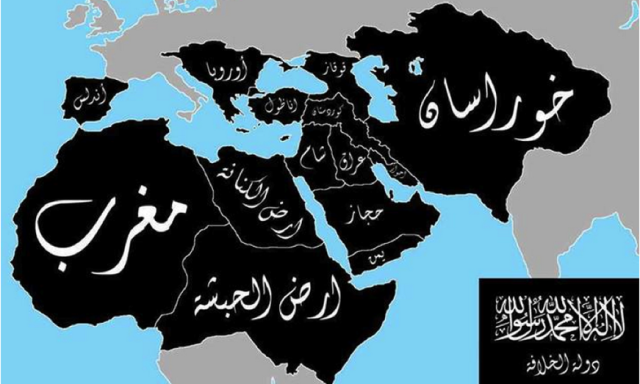
As Mr Chomsky says in the interview above though, unlikable as they are, it is crucial we do try to understand the Daesh movement and why so many Western born muslims are joining them.
There have been extensive studies as to what it appeal is and it turns out it is disaffected young people living in conditions of humiliation and degradation with nothing in their lives and most of them don’t have much of a background in Islam. Some of them are in fact recent converts […] and this is offering them some dignity and hope for their lives.
The most frustrating part of the whole Middle Eastern situation is the immensely complicated game of allegiances. It’s just ridiculous! You should really draw it all out to understand its complexity; who’s shooting who, who’s making the shooting possible and which parties are (not) on speaking terms. It would probably look something like this:
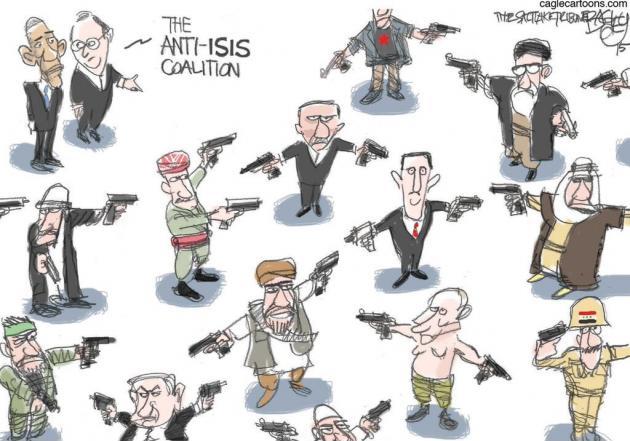
In a similar but simpeler fight you would say “where two dogs fight over a bone the third one runs away with it”, only in this case there are over a dozen dogs and in the chaos some are even biting their own legs. It also kind of reminds me of the crazy everyone-is-fighting-everyone-on-a-runaway-watermill scene in Pirates of the Caribbean.
In the meantime Daesh has found fertile ground in Egypt as well. The euphoria that the people of Egypt felt after Mubarak stepped down has made place for disappointment and despair, which happens to be what Daesh feeds on.
Seeing these news clips I can’t help but notice the absence of women in all of this. Maybe it’s time to let them give it a go…?


 It doesn’t seem to be working though, which makes me think perhaps it would be better to have no knowledge of the past at all, to eliminate all feelings of revenge and retaliation. No more history classes, no more social studies and no more religious education. Just start with a clean slate and let a child’s uninfluenced conscience decide what’s right and wrong. Controversial? Revolutionary? Unrealistic? Never gonna happen? Probably yes to all of those, but luckily I am free to dream…
It doesn’t seem to be working though, which makes me think perhaps it would be better to have no knowledge of the past at all, to eliminate all feelings of revenge and retaliation. No more history classes, no more social studies and no more religious education. Just start with a clean slate and let a child’s uninfluenced conscience decide what’s right and wrong. Controversial? Revolutionary? Unrealistic? Never gonna happen? Probably yes to all of those, but luckily I am free to dream…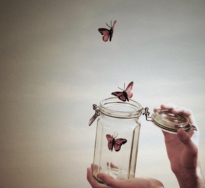 …which reminds me of the most inspiring quotes I ever heard and came from the mouth of
…which reminds me of the most inspiring quotes I ever heard and came from the mouth of  It is a word that fills the rhetoric of every local community leader you will ever meet as it stands for unity and a willingness to help. In the case of the MDG’s we did not only require solidarity within communities but more even between countries, cultures and economies.
It is a word that fills the rhetoric of every local community leader you will ever meet as it stands for unity and a willingness to help. In the case of the MDG’s we did not only require solidarity within communities but more even between countries, cultures and economies. I believe a balance between these two terms is crucial and I also believe, now more then ever, that this balance is often completely off.
I believe a balance between these two terms is crucial and I also believe, now more then ever, that this balance is often completely off. It’s quite evident that this model is defective, and holding onto the idea leans on the criminal. All the statistics show that the global economy has grown, yet so has the number of people living in poverty. Hickel explains:
It’s quite evident that this model is defective, and holding onto the idea leans on the criminal. All the statistics show that the global economy has grown, yet so has the number of people living in poverty. Hickel explains: Doesn’t that make you want to vomit? How dare we call our standard of living developed? Hickel proposes to actually refer to countries we have considered to be underdeveloped as “appropriately developed” and should subsequently urge rich countries to justify their excesses and perhaps start a de-development program for them.
Doesn’t that make you want to vomit? How dare we call our standard of living developed? Hickel proposes to actually refer to countries we have considered to be underdeveloped as “appropriately developed” and should subsequently urge rich countries to justify their excesses and perhaps start a de-development program for them.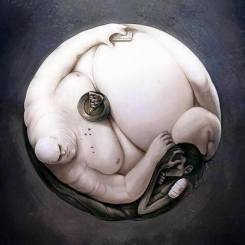 Evaluating this goal and pretending that at some point we really made an effort to create a global partnership on equal terms, with solidarity and sovereignty in place is really a joke. But it’s the kind of joke you want to cry about, not laugh.
Evaluating this goal and pretending that at some point we really made an effort to create a global partnership on equal terms, with solidarity and sovereignty in place is really a joke. But it’s the kind of joke you want to cry about, not laugh.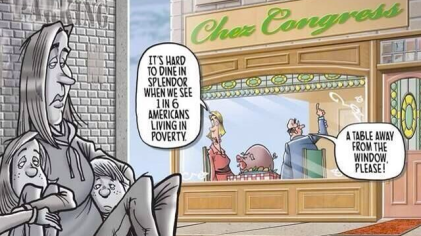

 She emphasizes that looking at the extremely wealthy and pinpointing things that may be hurting society are not to be pushed away as bitter remarks from envious people. It’s time to pull on those heartstrings and feel again what we all felt when we were children: it’s wrong and unjust and must be addressed, if we are to take these SDG’s seriously!
She emphasizes that looking at the extremely wealthy and pinpointing things that may be hurting society are not to be pushed away as bitter remarks from envious people. It’s time to pull on those heartstrings and feel again what we all felt when we were children: it’s wrong and unjust and must be addressed, if we are to take these SDG’s seriously!
 It’s a long story. At the World Food Conference in Rome, in 1974, when Henry A. Kissinger famously stated that “within a decade, no child will go to bed hungry,” F.A.O. experts estimated that the number of hungry people in developing regions was close to 460 million, and that in 10 years it could reach 800 million. That prediction was close: In a 1992 report, the F.A.O. stated that there were 786 million hungry people in 1988-90. It was a dramatic increase, a serious blow.
It’s a long story. At the World Food Conference in Rome, in 1974, when Henry A. Kissinger famously stated that “within a decade, no child will go to bed hungry,” F.A.O. experts estimated that the number of hungry people in developing regions was close to 460 million, and that in 10 years it could reach 800 million. That prediction was close: In a 1992 report, the F.A.O. stated that there were 786 million hungry people in 1988-90. It was a dramatic increase, a serious blow.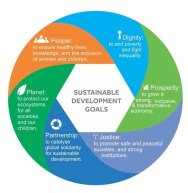 And now in recent weeks, we have been introduced to the new goals for the next fifteen years; the sustainable development goals (SDGs).There are 17 of them, subdivided into 169 targets… O.o
And now in recent weeks, we have been introduced to the new goals for the next fifteen years; the sustainable development goals (SDGs).There are 17 of them, subdivided into 169 targets… O.o



 The part of my brain that usually lights up while blogging seems to be dealing with a power shortage though and all my little writer gnomes are sitting around with candles, struggling to find their way around. The only flashlight in the room is being used to read the pages on matters in the Middle East…
The part of my brain that usually lights up while blogging seems to be dealing with a power shortage though and all my little writer gnomes are sitting around with candles, struggling to find their way around. The only flashlight in the room is being used to read the pages on matters in the Middle East…
 And then things started to shift…
And then things started to shift…
